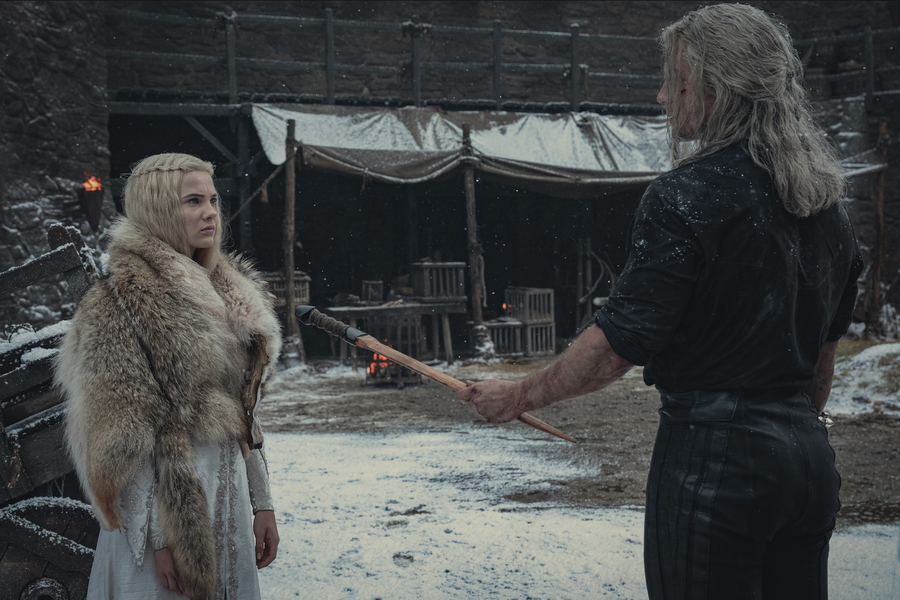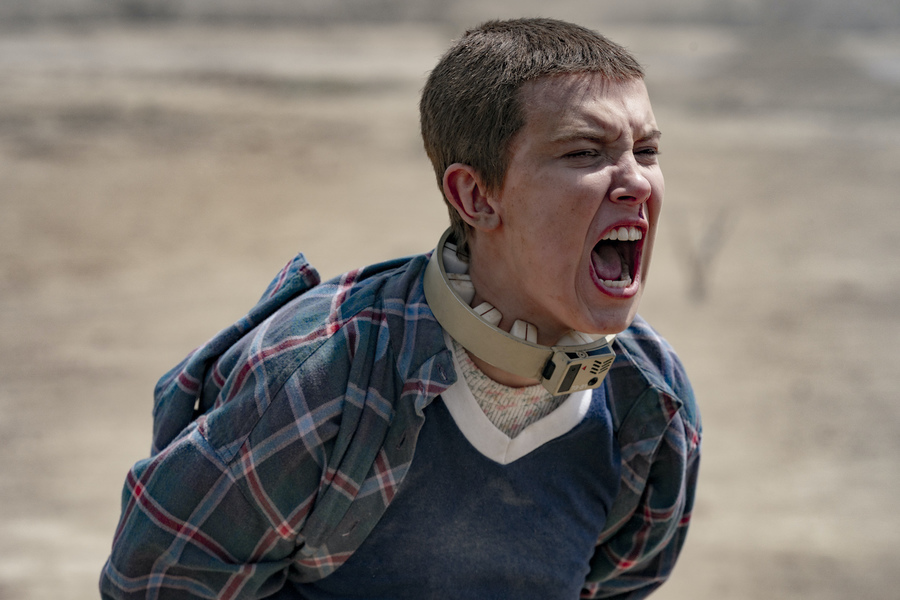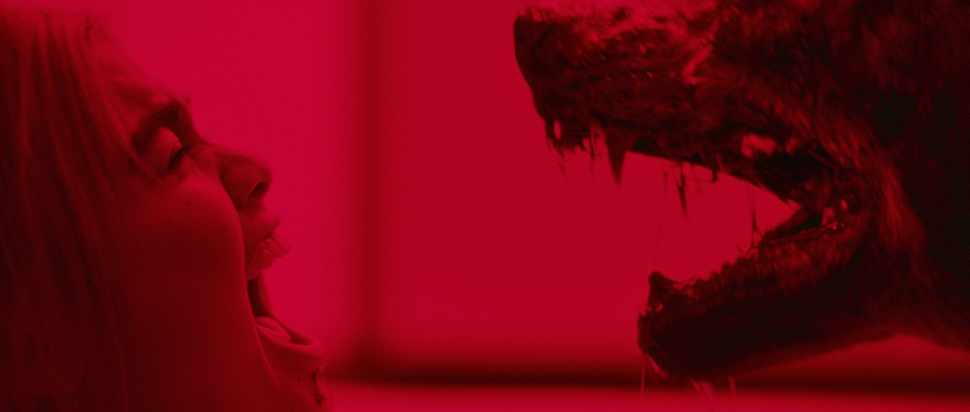TV Guide: What's Next For Netflix?
As Netflix seek out a post-Stranger Things flagship franchise to win the war against Disney+, we take a look at which of their streaming exclusives could qualify for its own cinematic universe
The dust hasn’t even settled on the town of Hawkins and fans of Stranger Things are taking to the internet, desperate for the mystery to be resolved. Will Eleven triumph over Vecna? Will Mike finally confess his feelings for Will? What’s at the top of this hill Kate Bush is constantly running up?
Though there’s one question that even Netflix doesn't have the answer to – what’s the streaming giant’s next step after we’ve seen the strangest things they have to offer? They’ve upped the ante to finish off their flagship franchise, but a season-finale-shaped band-aid is doing nothing to stop the bleeding; as Season 4 was finishing up, the company reported a loss of a million subscribers. More recently, Disney+ has overtaken Netflix in subscription numbers, and the rumour that ads will be introduced to the service won’t do much to win the loyalty of surviving clientele. What was once heralded as the alternative to price-gouging satellite television is quickly becoming the monster it hoped to slay.
But Netflix isn’t ready to be killed off just yet; they’ve got a plan to save the game from the clutches of Disney+. The company’s vice president revealed they want a new crown jewel IP, like Harry Potter or Star Wars; a setting that can become its own cinematic universe, that can contain an infinity of feature films and spin-offs. It makes sense – to beat The Mouse, you’ve got to milk franchises like The Mouse.
So what might Netflix’s heavy-hitter look like? Season one of the next great media monolith could have crept into the streaming service’s recommended page already. It needs wide appeal, to draw in a loyal fandom with good character writing, to transport viewers to a thoughtful world, with an edginess that nerdy parents don’t mind getting on board with. So, stuff like The Crown won’t reign supreme. Let’s look at some popular series that could qualify for the streaming world’s next cash cow.
Reticent Evil
The big red streaming site is hungry for plot twists, and one they’ve attempted recently is resurrecting a dead film franchise that nobody seems to care about. We’re curious to know what strain of the T-Virus Netflix has been infected with to make the bloated corpse of the six-film long Resident Evil movie franchise seem at all appetising, considering Milla Jovovich’s pouty performance wasn’t enough to keep people going after instalment three.
The reason the Netflix adaptation doesn’t work – on top of general post-Walking Dead zombie malaise – is the same reason the Paul W. S. Anderson adaptations don’t work. Video game adaptations struggle when amputated from their interactivity, when players who were free to explore the story at their own leisure are now set on somebody else’s rails. It’s particularly egregious when the Resident Evil games are known for reinventing their format every three titles – their change from tank-control survival horror, to dynamic shooter, to first-person puzzle fest gives fans a changing frame to constantly refresh their interest. With a mere two parallel narratives, one a dystopian future and the other a destabilising past, the Netflix creative laboratory has done little to mutate the source material into anything interesting.
Geralt’s Game

Freya Allan (L) and Henry Cavill (R) in The Witcher. Photo: Jay Maidment
Where a horror/science fiction hybrid has failed to generate excitement, a twisted fantasy adventure has enchanted audiences, as The Witcher has the costuming and prop departments to transport audiences to a gruelling, ghoulish fantasy world. The ability to craft a setting that’s overgrown with detail, without resorting to oafish tropes or talking down to the audience, was the magic ingredient that catapulted Game of Thrones into legend (before it promptly lost its crown due to a rushed finale riddled with plot-holes).
Though we’d love to get lost in a world like The Witcher’s, there would be a few bugbears Netflix would need to overcome before rolling out the prequels and sequels – primarily, how to take the focus away from the title character. Henry Cavill’s bound to hang up the silver wig at some point, and it’s hard to imagine the series without the wise-cracking, sword-swinging Geralt of Rivia. It’s not just that we all have a crush on him; the plot revolves around his relationship with the monsters he is contracted to destroy. Seldom is more than one beastie needed per episode, because the content of the show is Geralt finding monstrosity in corrupt, controlling institutions. If you don’t doubt that the adventure stops with the Witcher himself, ask yourself how much you care about those Harry Potter prequels that came out after Daniel Radcliffe’s last appearance in Deathly Hallows. The one you actually went to see, at least.
You’ve Gotta Be Squidding Me

A still from Squid Game. Photo: Noh Juhan / Netflix
If you’ve somehow avoided having your ear talked off about it already, Squid Game is the kind of programming that would save Netflix from their impending financial doom if they just made more stuff of that quality. The distinct style – pairing basic geometry with colourful set design, creating a childlike simplicity that clashes with the dark, complex subject matter – made the thumbnail immediately appealing to TV browsers when it crossed the starting line last September. A cut-throat series of games for a forty-five billion won prize, which brings out the most desperate and deadly of its unique cast of characters, and still points the finger at the evils of worldwide capitalism, is what made the show a winner. It’s been given the green light for a second season, and nominated for fourteen Emmy awards. For one brief moment last year, Netflix made TV writing look like child’s play.
But will this world of lethal playground pastimes take them to a piggy bank full of subscribers? With many more mysteries unsolved, Squid Game has a future on the platform, but if you lift the mask off the popular series, an all-too-expected twist is lurking underneath. As soon as Netflix's commercial team saw what a hit the show was, they got their tentacles all over it. This writer recalls Halloween costumes of the iconic pink jumpsuits, mobile apps recreating the games they were forced to play, and even whispers of a reality television adaptation, bringing together hundreds of real-world fans to desperately compete for a big cash payout.
It’s not hard to see the irony in a popular television show exposing the infantilising, anonymising weight of capitalism on the individual, getting stickered on to everything that could sell for a couple extra quid. Now the greedy institutions that make the villains in Squid Game are the ones gripping it hardest with suction cups, squeezing it until the very point it’s trying to make is mangled beyond recognition. In the tug-of-war between quality and quantity, Netflix will unleash an army of cheap Squid Game spin-offs, until the anti-capitalist moral has lost all meaning. The theme won’t survive long enough to make it to franchise status – it’ll just be wrung out until it’s as unpopular as the last 456 series.
The Season Finale of Season Finales

Millie Bobby Brown as Eleven in Stranger Things. Photo: Ursula Coyote / Netflix
Which brings us to the best candidate to launch a multimedia multiverse that’ll dominate our airwaves for the next few decades – nothing at all. When I was a poor student in 2016, I signed up for a Netflix free trial because I’d heard good things about this Stranger Things show all over the internet. I binged the eight episode series in one day, and decided to pay the full subscription fee, since Netflix was onto something special – shorter shows, with meaningful themes and characters, the goals of which were to try something new and intriguing, not whatever’s big and profitable. But now, it seems like the executives are changing the channel.
The vice president of the world’s second biggest streaming service (as of last month) reveals that they want to magic up a golden goose that can have infinite spin-offs. Who’s going to tell him that Star Wars didn’t start out that way? For reference, Batman vs Superman had hoped to launch a cinematic universe that rivalled Marvel, which it’s only now given up on after multiple flops. That Tom Cruise Mummy film was supposed to awaken a media franchise of classic movie monsters; its only treasures were eight Golden Raspberry nominations. A film created for the purposes of being a foothold into something good will never be as successful as… creating something good.
Any corporation that uses its resources to pathetically reflect the trends of conglomerates instead of appealing to their audience’s taste and imagination, will (and should!) fail. Netflix are doing little to ensure I keep my subscription, and as their stock plummets, sitting around and hoping that one of their writers will randomly invent the next Star Trek suggests they know nothing about how these franchises build followings in the first place. I’d be happy to wave them off into digital oblivion, if it didn’t mean that the entire television industry would fold neatly into the white gloves of a monopolous, mousy megacorp. Come that day, more and more users will be turning to piracy, and not the kind depicted in Black Sails...
